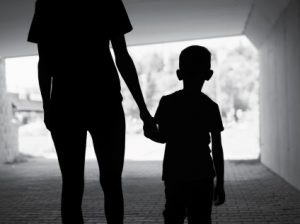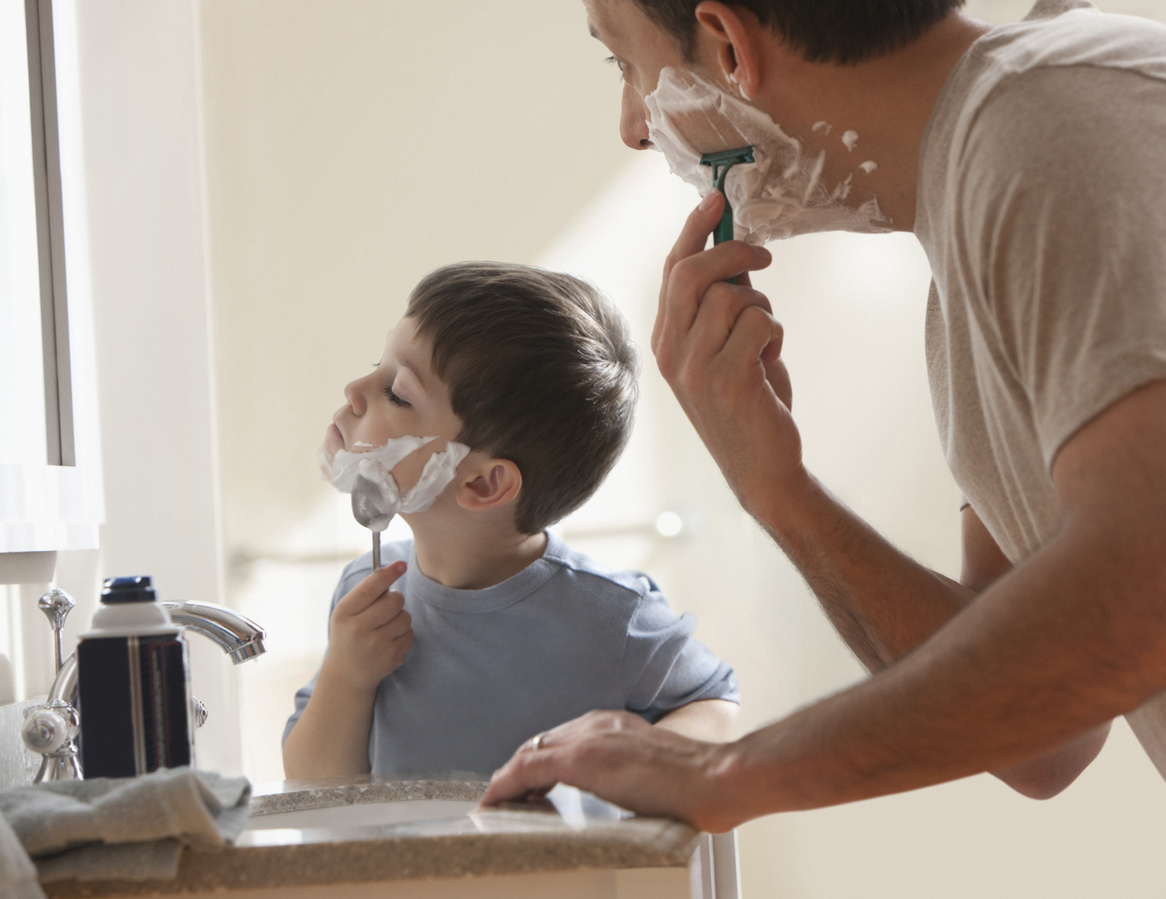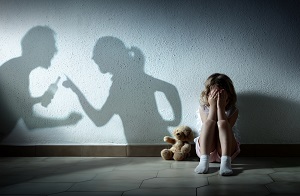When the Co-Parenting Issue is Safety
Safety is close to the bottom of Maslow’s hierarchy of needs. It is core to children’s ability to become resilient. It can also be a very difficult topic to address during a divorce. Here’s how the issue can arise during a discussion of parenting time arrangements:
Parent A: You want equal parenting time, but I’m worried sick about you being able to take care of the kids, especially at night and also after your softball games when you’d be driving them home after partying with your team.
Parent B: What are you talking about?
Parent A: Don’t pretend you don’t know what I mean. It’s how much you drink. You drink every night. I find you passed out in the chair in front of the TV half the time.
Parent B: I knew you’d pull this. Have I had a DWI? Lost my job? No! It’s you who has the problem, not me. Quit comparing me to your alcoholic dad. I think you just want the kids more to get more child support.
Parent A: This has nothing to do with child support, and you know it. Besides, you did get a DWI.
Parent B: If you’re gonna go back 15 years, then let’s talk about the time you passed out at your best friend’s wedding reception.
Parent A: Yeah, one time. And I basically quit drinking after that.
Parent B: Right, and now you have a panic attack any time I want a beer. Quit trying to control me.
Sound a bit familiar? Sound a bit challenging? Sound like the children in this family could easily find themselves in the middle of escalating parental conflict, if they aren’t already?
Substance abuse or misuse is best understood as a systemic issue in a family because it impacts everyone. And each family member has his or her story about it. Denial, minimalization and sometimes projection are very likely to be part of one parent’s story, especially if they are dealing with the disease of chemical dependency. Anxiety, frustration and co-dependence are very likely to be woven into the other side of the story. Each parent is likely to show anger, because anger is hardwired and is a protective response to vulnerability.
In addition, each parent is likely experiencing fear. The parent identified as having a problem may be fearful of consequences like losing access to their kids, or even their parental rights. The parent raising the issue is fearful of something bad happening to the kids that might have been prevented by speaking out and setting firm boundaries.
And what are the children’s stories? Might a skilled child-inclusive process be helpful?
As a neutral child and family specialist, I believe that a family law response to situations like this must have a laser- focus on what the children in the family need and deserve: the best safe relationship they can have with both parents. As a neutral, it is imperative to stay in a place of empathy and also be willing to calmly ask hard questions and to name the issues that arise, not with judgment but with clarity.
If a neutral professional has earned the trust of both parents, it is possible to engage with them in a voluntary process of creating a Confidential Safety Plan that is:
-
- designed to preserve parent-child attachment as much as possible; and
- identifies mutually agreed-upon “trust but verify” safety strategies, and
- specifies clear consequences and steps to be taken if a parent will not or is not able to honor their commitment to safety during parenting time as identified in the Safety Plan.
Because divorce decrees and Parenting Plans are online public documents, and given the sensitivity of issues addressed in a Safety Plan, it is important that the Safety Plan be filed with other confidential divorce documents where it can be accessed as needed, but will not be available to the public.
As with all out-of-court dispute resolution, the *Confidential Voluntary Safety Plan is not an appropriate option for all families, particularly if coercive control, domestic violence or child abuse are part of a family’s dynamic. But for those parents generally able to engage in good faith negotiation, this option can be a safe way for them to address a difficult issue with dignity, clarity and respect.
About the Author
Deborah Clemmensen has devoted her professional life to the well-being of  children and families.
children and families.
She is a licensed psychologist with decades of experience as a psychologist working with children, adolescents, families and adults. She been a Neutral Child and Family Specialist in family law for twenty-three years, participating in Collaborative Practice teams, traditional divorce processes and child-inclusive mediation, helping parents create Parenting Plans, We Statements and Confidential Collaborative Safety Plans.
Deborah has extensive experience as a consultant and trainer on child mental health issues and Collaborative Practice and has done research and published articles on a variety of topics.
Deborah has twice been co-President of the Collaborative Law Institute of Minnesota. She has served two terms on the CLI Board. She continues to participate on several committees of the Collaborative Law Institute of Minnesota, including the Training Committee and is currently a member of the Hague Convention Task Force of the International Academy of Collaborative Professionals.
As a Collaborative professional, Deborah coined the phrase, “keeping children at the center and out of the middle.” This principle guides her work with families in Collaborative Practice and family law.
Contact:
Deborah Clemmensen, M.Eq., Licensed Psychologist, Neutral Child and Family Specialist
deborah.clemmensen@gmail.com
www.deborahclemmensen.com
*Deb Clemmensen will be presenting “Confidential Voluntary Safety Plans” on November 9, 2023 from 9 AM – 11AM at the Neighborhood House at Wellstone Center | 179 Robie Street East, St. Paul, MN 55107 Hosted by the Collaborative Law Institute of Minnesota. Details and Registration https://collaborativelaw.org/events/
I hope that young children were not still up and watching the *Academy Awards broadcast when Will Smith got out of his seat, walked up the concourse, and forcefully slapped Chris Rock for making a poor joke at the expense of his wife Jada Pinkett Smith. But even if children didn’t watch it live, they are likely still being exposed to the ongoing coverage and analysis of this startling event on social media and mainstream media. Disagreement abounds over which man was most in the wrong. Some posters and oped writers try to justify each man’s actions. There have been thoughtful critiques about toxic masculinity in our culture, and how it inevitably leads to violence of one kind or another.
Many believe Chris Rock was bullying Jada Pinkett Smith by publicly mocking her bald head, especially given her alopecia. Some respond that comedians insulting celebrities at “star-studded events” and roasts has become something of the norm and is to be expected. Some say Will Smith’s retaliation was also bullying behavior, since Smith was trained to box like a professional for the film Ali and is much bigger and stronger than Rock. But others respond that his response was justified to “protect” his wife. (I confess, I thought Pinkett Smith’s grimace of disgust and exaggerated eye roll at the weak joke was a pretty potent response in and of itself).
What does this whole event model for our children, who emulate adult behavior? Is mocking others, especially for things they can’t control, ever justified? Does saying “Just kidding!” after a cruel remark make it okay? Should bystanders go along by joining the mocking laughter, or do they have a responsibility to call out bullying behavior?
Is lashing out aggressively after a perceived put-down ever justified? Does being “in the heat of the moment and not thinking clearly” make an impulsive violent response, okay? Should bystanders go along by saying nothing, or do they have a responsibility to call out violent behavior?
What does this event say about how women and girls should expect to be treated? In the Me Too era, a time when native women have disappeared in shocking numbers, when human trafficking and domestic violence are still huge social problems, we know that women do need the strong protection of laws and social norms. Is this kind of protection the same or different than what happened at the Oscars?
If you haven’t already, I encourage you to watch the documentary “When We Were Bullies.” This film was also featured briefly at the Academy Awards as a nominee for best short documentary. Ellen Bruno, the creator of the masterful film Split about the children of divorce was a creative consultant for this film, which is extremely well done. It focuses on a 5th grade bullying incident and the lingering effects, 50 years later, on those who participated. Like this essay, it raises important questions and examines context and perspective, but does not aim for simplistic resolutions.
As parents and adults who care about children, we need to have open conversations with them, and ask curious questions about bullying behavior vs. respectful behavior and the difference between control and power. We need to ask ourselves what it really means to create safety for others, and what responsibility we all share when safety is violated. And we need to always be aware that the most powerful tool in the adult toolkit is modeling the behavior we want our children to emulate and taking responsibility rather than blaming others for any time we (as humans) fall off the high road.
*Since this article was written, Will Smith has apologized publicly for his inexcusable behavior at the Academy Awards ceremony. He has been banned from the Academy of Motion Picture Arts and Sciences and the Awards ceremony for 10 years.
Author: Deborah Clemmensen, M.Eq., L.P. is a Neutral Child and Family Specialist in
Collaborative Practice and Family Law
deborah.clemmensen@gmail.com
Children begin their lives constantly observing and emulating our use of language. A baby watches, listens and models her mother’s face saying “Ohhhh,” moving her own lips to form the shape of that sound. A toddler in his car seat repeats the word his parent blurted out when cut off suddenly in traffic, usually to the great chagrin of the parent. My 5-year-old granddaughter cocks her head seriously and says, “Well, actually, the most interesting thing is…..” just the way her mom does.
Knowing they are listening, seeking to understand, and emulating how we talk, adults must be mindful of what we say and how we say it in the presence of children. This may be especially important during the life crisis of a divorce, when children are already feeling vulnerable and anxious. Similar to being cut off suddenly in traffic, negative emotions during a divorce can quickly heighten, along with the risk of blurting out words one will later regret. When under stress, the guard rails filtering words can become wobbly or fall off altogether.
It’s not just angry, sarcastic, insulting words that children internalize, it is also the meaning of those words in the context of relationships. Children are deeply hurt and frightened when parents fight with each other, and not infrequently, will beg them to stop. What does it mean to them that the two most important adults in their lives are attacking each other this way?
We live in an era when disrespect, insulting and belittling words and verbal abuse are regularly tweeted out in all caps. Sadly, this has the effect of normalizing unfiltered language. This is hard enough to manage as an adult but giving vent to verbal rage will never be anything but damaging to a child. So, what can parents do if they feel triggered? They need to slow it down.
Two simple techniques to help create more mental and emotional space under stress are:
- Mindful breathing: taking at least four deep, slow belly breaths before responding; and
- Softening your eyes: focusing on relaxing the muscles around your eyes so they fall back into their sockets.
Both techniques will relax tension in your body, which helps to clear your head, strengthen your guardrails, and give you time to respond rather than react. If this can create more emotional safety for your children, it is well worth the effort.
 Author: Deborah Clemmensen, M.Eq., L.P. is a Neutral Child and Family Specialist in Collaborative Practice and Family Law
Author: Deborah Clemmensen, M.Eq., L.P. is a Neutral Child and Family Specialist in Collaborative Practice and Family Law
Divorce is never an easy topic, nor should it be an easy answer – but what about during a pandemic? Is disrupting your family’s life to separate into two households the right thing to do when a pandemic is taking place?
There is never going to be a “right” time to divorce. Once a couple figures out either on their own or through counseling[1] that their problems cannot be solved, a constructive divorce is often the next step.
Courts are open and those cases that can be resolved without any court hearings are moving more rapidly than ever through the now virtual court system. The collaborative divorce model has been around for awhile, but using it now during the pandemic can make your divorce more efficient, while still bringing in the professionals as needed for your particular situation, including financial planners, mortgage brokers, child specialists, divorce coaches or mediators.
Collaborative may be the right process for you if you want the following:
- To stay out of court,
- To work things out on your own,
- To make a plan for the future for both parties looking at your family’s interests and needs,
- To maintain a private, safe environment to exchange ideas and options,
- To put your family first.
Collaborative Divorce is not going to be about winning, revenge or punishment. Rather the collaborative process requires both attorneys and parties to focus on interests and goals instead of positions through a series of joint meetings. Traditionally these meetings were held in person, but the same meetings can now take place virtually and everything can be handled online. Starting the process now may be just as good as any other time.
You can find more detailed information about collaborative practice and look for professionals to help get you started at the Collaborative Law Institute of Minnesota.
[1] Discernment Counseling is a type of limited scope counseling that helps couples or individuals determine whether to work on their marriage or keep moving towards divorce. See University of Minnesota Couples on the Brink project.
Author: Angela Heart, Heart Law, LLC
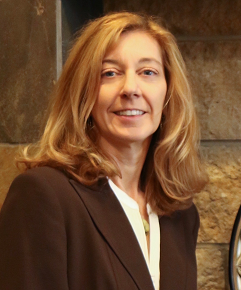 Angela is a collaborative family law attorney at Heart Law, LLC. Her mission is to enable and empower divorcing couples to have a smooth transition that is family focused during a life changing event. To find more information about Heart Law go to www.heartlaw.net.
Angela is a collaborative family law attorney at Heart Law, LLC. Her mission is to enable and empower divorcing couples to have a smooth transition that is family focused during a life changing event. To find more information about Heart Law go to www.heartlaw.net.
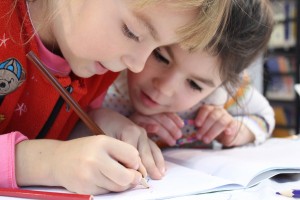 April is Autism Awareness Month, the two month anniversary of the Marjory Stoneman Douglas High School shooting, and the 19th anniversary of Columbine. Why talk about ASD and school shootings in the same sentence? And why a divorce blog? I will get to that. But as a lawyer-mom, these two issues are at the forefront of my mind, and probably the minds of many parents and educators these days. We should rest assured that our kids would know what to do during a lock-down because they have spontaneous drills throughout the year, right? Ugh…what am I saying? The fact that kids NEED lockdown drills is downright outrageous! Nonetheless, I wondered what the younger kids are told and what happens during these drills. Well, lucky me, when I recently volunteered in my son’s elementary school classroom, the school had a lock down drill. And one word sums up the experience: chilling.
Lockdown drills are very different from the fire and tornado drills we had as kids. I’m sure everyone remembers the fire drills – exit the classroom quickly and get away from the building. Or the tornado drills – go out to the hallways, away from the doors and windows, and cover your head with your hands. Up until about 1999, THOSE were the drills Minnesotan kids experienced. In fact, most the time, much to our teacher’s chagrin, we were laughing and joking around. A lock down drill, however, has a very different vibe. The kids must be EXTREMELY quiet. They huddle into a specific area and are instructed to remain eerily still. This had been a bustling class (and school) just moments before, but now it was so quiet, you could hear a pin drop. This was a class of 30 second graders, so I was stunned at the deafening silence. Just when I thought it was over (it seemed like forever, but was probably two minutes) someone rattled the door handle. Forcefully. Not a peep from the kids, but I jumped. Luckily, they didn’t see me or they might have erupted into giggles. We had to continue to remain quiet and motionless. Interestingly, I don’t remember what happened next; that is, I don’t recall if there was a bell or another signal indicating the drill was over (I think I was sort of in shock). The kids went about their business, working on their projects, like it was no big deal. Only it was a big deal. At least it was to me and the other adults in the room. I just looked at the staff, wide-eyed, and shook my head.
School lock downs are now a reality for school-aged children. It makes my heart ache. I asked my son that evening why they have lockdowns and he nonchalantly said it was in case anyone wants to break into the school. That was it. Simple enough. But as we grown-ups know, there is nothing simple about this.
My son is a “mover and a crasher,” so I was relieved he made it through the drill. But I thought about the other high-needs/special-needs kids in his school. For any child who has physical needs or doesn’t cognitively understand the drill, simply can’t be quiet and remain calm, needs to move, or overreacts when accidentally bumped or touched by a classmate, what would that child do in this drill? Or, God forbid, in a REAL situation? With more and more kids being diagnosed with ASD, what protocols are in place for them? Is there a special section in their IEP about drills? There ought to be.
This made me think about special-needs kids whose parents are going through a divorce. The teachers are aware of kids’ needs (or should be). So, too, should the divorce team. A child’s symptoms often reemerge or worsen when they are stressed, which could happen during parental conflict and/or separation. Child specialists can work with the parents and the child’s pediatrician and/or therapist to help create a parenting plan that is in the child’s best interests. Like it or not, otherwise fit and loving parents need to work together for there children’s sake. Fortunately, the Collaborative process can help parents really focus on their kids, by putting them in the center, rather than the middle, of the divorce process. Every family situation is unique. Every family and every child deserve a creative plan to help move them forward, restructure, and get to a new “normal.” Drill and lockdown protocols included.
April is Autism Awareness Month, the two month anniversary of the Marjory Stoneman Douglas High School shooting, and the 19th anniversary of Columbine. Why talk about ASD and school shootings in the same sentence? And why a divorce blog? I will get to that. But as a lawyer-mom, these two issues are at the forefront of my mind, and probably the minds of many parents and educators these days. We should rest assured that our kids would know what to do during a lock-down because they have spontaneous drills throughout the year, right? Ugh…what am I saying? The fact that kids NEED lockdown drills is downright outrageous! Nonetheless, I wondered what the younger kids are told and what happens during these drills. Well, lucky me, when I recently volunteered in my son’s elementary school classroom, the school had a lock down drill. And one word sums up the experience: chilling.
Lockdown drills are very different from the fire and tornado drills we had as kids. I’m sure everyone remembers the fire drills – exit the classroom quickly and get away from the building. Or the tornado drills – go out to the hallways, away from the doors and windows, and cover your head with your hands. Up until about 1999, THOSE were the drills Minnesotan kids experienced. In fact, most the time, much to our teacher’s chagrin, we were laughing and joking around. A lock down drill, however, has a very different vibe. The kids must be EXTREMELY quiet. They huddle into a specific area and are instructed to remain eerily still. This had been a bustling class (and school) just moments before, but now it was so quiet, you could hear a pin drop. This was a class of 30 second graders, so I was stunned at the deafening silence. Just when I thought it was over (it seemed like forever, but was probably two minutes) someone rattled the door handle. Forcefully. Not a peep from the kids, but I jumped. Luckily, they didn’t see me or they might have erupted into giggles. We had to continue to remain quiet and motionless. Interestingly, I don’t remember what happened next; that is, I don’t recall if there was a bell or another signal indicating the drill was over (I think I was sort of in shock). The kids went about their business, working on their projects, like it was no big deal. Only it was a big deal. At least it was to me and the other adults in the room. I just looked at the staff, wide-eyed, and shook my head.
School lock downs are now a reality for school-aged children. It makes my heart ache. I asked my son that evening why they have lockdowns and he nonchalantly said it was in case anyone wants to break into the school. That was it. Simple enough. But as we grown-ups know, there is nothing simple about this.
My son is a “mover and a crasher,” so I was relieved he made it through the drill. But I thought about the other high-needs/special-needs kids in his school. For any child who has physical needs or doesn’t cognitively understand the drill, simply can’t be quiet and remain calm, needs to move, or overreacts when accidentally bumped or touched by a classmate, what would that child do in this drill? Or, God forbid, in a REAL situation? With more and more kids being diagnosed with ASD, what protocols are in place for them? Is there a special section in their IEP about drills? There ought to be.
This made me think about special-needs kids whose parents are going through a divorce. The teachers are aware of kids’ needs (or should be). So, too, should the divorce team. A child’s symptoms often reemerge or worsen when they are stressed, which could happen during parental conflict and/or separation. Child specialists can work with the parents and the child’s pediatrician and/or therapist to help create a parenting plan that is in the child’s best interests. Like it or not, otherwise fit and loving parents need to work together for there children’s sake. Fortunately, the Collaborative process can help parents really focus on their kids, by putting them in the center, rather than the middle, of the divorce process. Every family situation is unique. Every family and every child deserve a creative plan to help move them forward, restructure, and get to a new “normal.” Drill and lockdown protocols included.
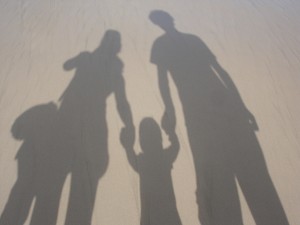 Children deserve the best, safe parenting they can get from both their parents. This is a fundamental guiding principle for my work as a neutral child specialist. It sounds intuitiveand obvious. But in the context of separation and divorce, what do these words really mean?
Let’s start with the word deserve. Deserve can imply earned by merit. It can also imply entitlement and privilege by virtue of rank. But neither is an accurate definition in this context. The birthright of children with the benefit of having two competent and caring parents is to be nurtured, guided and unconditionally loved by both. Regardless of the status of the relationship between their parents.
What does best mean? Not “we’re #1,” not competitively better than any other parents in our kid’s play group, not striving for perfection. Best is what describes responsive, mindful, attuned, child-focused parenting. Setting expectations that allow kids to achieve mastery without becoming overwhelmed. Understanding that your child’s needs and perspectives are different than your own, and not suppressing his or her individuality. Staying centered and finding resources to help manage your own emotions to model how to handle hard times without falling apart. Even during a painful separation or divorce.
That leaves the word safe. What is safe parenting? Safe parenting does not mean that children will never experience pain, disappointment, loss, sadness or anxiety. It means that when hard times come, parents turn toward and never away from their children and provide consistent empathy and support. Safe parenting is clear-headed, not distracted or addicted. Safe parenting requires good boundaries, emotionally as well as physically; children do not exist to meet the needs of their parents. Safe parenting means that kids never belong in the middle of conflicts between parents, even when parents are experiencing the distress of a separation or divorce. Safe parenting means children do not feel abandoned.
Parents’ actions and words create narratives and expectations children will carry throughout their lives. These stories define self-worth and can make or break a sense of hope for the future. Creating child-focused, developmentally appropriate parenting plan is one way to ensure your children’s narrative of divorce includes the best, safe parenting for them as they head into the future.
Children deserve the best, safe parenting they can get from both their parents. This is a fundamental guiding principle for my work as a neutral child specialist. It sounds intuitiveand obvious. But in the context of separation and divorce, what do these words really mean?
Let’s start with the word deserve. Deserve can imply earned by merit. It can also imply entitlement and privilege by virtue of rank. But neither is an accurate definition in this context. The birthright of children with the benefit of having two competent and caring parents is to be nurtured, guided and unconditionally loved by both. Regardless of the status of the relationship between their parents.
What does best mean? Not “we’re #1,” not competitively better than any other parents in our kid’s play group, not striving for perfection. Best is what describes responsive, mindful, attuned, child-focused parenting. Setting expectations that allow kids to achieve mastery without becoming overwhelmed. Understanding that your child’s needs and perspectives are different than your own, and not suppressing his or her individuality. Staying centered and finding resources to help manage your own emotions to model how to handle hard times without falling apart. Even during a painful separation or divorce.
That leaves the word safe. What is safe parenting? Safe parenting does not mean that children will never experience pain, disappointment, loss, sadness or anxiety. It means that when hard times come, parents turn toward and never away from their children and provide consistent empathy and support. Safe parenting is clear-headed, not distracted or addicted. Safe parenting requires good boundaries, emotionally as well as physically; children do not exist to meet the needs of their parents. Safe parenting means that kids never belong in the middle of conflicts between parents, even when parents are experiencing the distress of a separation or divorce. Safe parenting means children do not feel abandoned.
Parents’ actions and words create narratives and expectations children will carry throughout their lives. These stories define self-worth and can make or break a sense of hope for the future. Creating child-focused, developmentally appropriate parenting plan is one way to ensure your children’s narrative of divorce includes the best, safe parenting for them as they head into the future.
 friends and figuring out who is hosting which holiday. Many families have traditions that may go back generations. As parents, we may choose to keep those traditions or create new ones. One of my family traditions was my grandmother’s cranberry marshmallow salad. I have her recipe, helped her make it when I was a little girl, but I just can’t recreate it on my own. No matter how much sugar I add, it’s too tart; sadly, I might just need to let this tradition go. (Unlike the shredded carrot and jello salad many of us grew up with, this cranberry salad really was fabulous!) I discovered and revised a cranberry sauce that my kids actually eat, so that has become part of our Thanksgiving tradition. While she is no longer with us and I miss her terribly, I suspect my grandmother would be just fine with my new creation.
Whether your traditions are about food, going to Grandma’s every Thanksgiving or stopping by for dessert at Uncle Jim’s Christmas Day, traditions are part of who we are. For families experiencing separation and divorce, it’s important to try to maintain those traditions. A new normal, along with new traditions, will eventually emerge, but if your kids love going to your in-laws because Uncle John makes the best peach pie ever and Santa makes a special appearance for the little ones – thanks to Uncle Al – please maintain those traditions for your kids. While you might not want to spend the holidays with your (former) spouse and his or her family, based on what clients have told me, consider the following: 1) share the holidays, rather than trying to keep them all to yourself, so your kids can enjoy those special traditions (who doesn’t love spending time with all the aunts, uncles, and cousins? On both sides of the family?) and 2) consider spending the holidays with your former spouse at some point in the future. Sounds crazy, right? No…your kids would love it! While it is probably the furthest thing from your mind right now and might not happen for some time, parents who are able to step up for the benefit of their kids are glad they were able to come together as co-parents and enjoy their children together. And if you have had a good relationship with your in-laws in the past, chances are, you will have a pleasant time, too. ‘Tis the season for giving…and you will definitely be giving your kids a wonderful gift.
friends and figuring out who is hosting which holiday. Many families have traditions that may go back generations. As parents, we may choose to keep those traditions or create new ones. One of my family traditions was my grandmother’s cranberry marshmallow salad. I have her recipe, helped her make it when I was a little girl, but I just can’t recreate it on my own. No matter how much sugar I add, it’s too tart; sadly, I might just need to let this tradition go. (Unlike the shredded carrot and jello salad many of us grew up with, this cranberry salad really was fabulous!) I discovered and revised a cranberry sauce that my kids actually eat, so that has become part of our Thanksgiving tradition. While she is no longer with us and I miss her terribly, I suspect my grandmother would be just fine with my new creation.
Whether your traditions are about food, going to Grandma’s every Thanksgiving or stopping by for dessert at Uncle Jim’s Christmas Day, traditions are part of who we are. For families experiencing separation and divorce, it’s important to try to maintain those traditions. A new normal, along with new traditions, will eventually emerge, but if your kids love going to your in-laws because Uncle John makes the best peach pie ever and Santa makes a special appearance for the little ones – thanks to Uncle Al – please maintain those traditions for your kids. While you might not want to spend the holidays with your (former) spouse and his or her family, based on what clients have told me, consider the following: 1) share the holidays, rather than trying to keep them all to yourself, so your kids can enjoy those special traditions (who doesn’t love spending time with all the aunts, uncles, and cousins? On both sides of the family?) and 2) consider spending the holidays with your former spouse at some point in the future. Sounds crazy, right? No…your kids would love it! While it is probably the furthest thing from your mind right now and might not happen for some time, parents who are able to step up for the benefit of their kids are glad they were able to come together as co-parents and enjoy their children together. And if you have had a good relationship with your in-laws in the past, chances are, you will have a pleasant time, too. ‘Tis the season for giving…and you will definitely be giving your kids a wonderful gift.
 The second definition provides a visual for what many think a divorce “looks like.” While the end of a marriage is emotionally tumultuous and devastating, the actual legal process of uncoupling does not have to be. But, it is critical that you choose a process that promotes healing. The Collaborative Process does just that.
Collaboration is a holistic approach to divorce. It can be utilized by couples who are ending either a marriage or significant relationship, or who have a child or children together. Although some people question whether it is an appropriate process when domestic abuse or mental health/chemical dependency issues are present, many others think it can (and should) at least be attempted. If you don’t want to be another “divorce horror story,” the Collaborative Process will likely be a great fit.
Collaboration focuses on the future (i.e., the relationship of co-parenting in two homes) rather than the past (i.e. the vilification of one spouse); is a win-win for both partners (rather than a court-imposed win-lose); and emphasizes the well-being of the entire family. You don’t air your dirty laundry in court, and you aren’t (literally) judged. In fact, you never set foot in a courtroom. The negotiation model is interest-based/win-win, rather than positional/win-lose. You pay attorneys to help you solve problems, not argue and keep you stuck in the past. Every family is unique, so every family deserves a unique solution. And if you have young children, please keep in mind they need you present and available. You can’t be present when you are fighting the other parent in court. In Part 3, we will discuss the various professionals in the Collaborative Process and how their expertise can help you avoid the divortex.
The second definition provides a visual for what many think a divorce “looks like.” While the end of a marriage is emotionally tumultuous and devastating, the actual legal process of uncoupling does not have to be. But, it is critical that you choose a process that promotes healing. The Collaborative Process does just that.
Collaboration is a holistic approach to divorce. It can be utilized by couples who are ending either a marriage or significant relationship, or who have a child or children together. Although some people question whether it is an appropriate process when domestic abuse or mental health/chemical dependency issues are present, many others think it can (and should) at least be attempted. If you don’t want to be another “divorce horror story,” the Collaborative Process will likely be a great fit.
Collaboration focuses on the future (i.e., the relationship of co-parenting in two homes) rather than the past (i.e. the vilification of one spouse); is a win-win for both partners (rather than a court-imposed win-lose); and emphasizes the well-being of the entire family. You don’t air your dirty laundry in court, and you aren’t (literally) judged. In fact, you never set foot in a courtroom. The negotiation model is interest-based/win-win, rather than positional/win-lose. You pay attorneys to help you solve problems, not argue and keep you stuck in the past. Every family is unique, so every family deserves a unique solution. And if you have young children, please keep in mind they need you present and available. You can’t be present when you are fighting the other parent in court. In Part 3, we will discuss the various professionals in the Collaborative Process and how their expertise can help you avoid the divortex.
 publishing. Everyone apparently thinks they have tips and ideas to help others parent. As a collaborative divorce attorney, clients often seek guidance and support in co-parenting during and after the divorce. No book ever fits the bill. While traditional books may offer some guidance, co-parenting after divorce is a unique situation. Not only do children sometimes have challenges as the result of the divorce, parents too are transitioning into a new reality.
In collaborative divorce, we often work with a family specialist or child specialist to help families transition from one home, into two. This neutral party can assist in many aspects of parenting, including the following:
publishing. Everyone apparently thinks they have tips and ideas to help others parent. As a collaborative divorce attorney, clients often seek guidance and support in co-parenting during and after the divorce. No book ever fits the bill. While traditional books may offer some guidance, co-parenting after divorce is a unique situation. Not only do children sometimes have challenges as the result of the divorce, parents too are transitioning into a new reality.
In collaborative divorce, we often work with a family specialist or child specialist to help families transition from one home, into two. This neutral party can assist in many aspects of parenting, including the following:
- Coach parents on telling the children about divorce.
- Bring the children’s voice to the process by hearing their concerns and hopes and communicating them to the parents.
- Communication coaching.
- Developing a parenting plan and schedule for parenting in two homes.
- How to maintain relationships with extended family.
- Consulting after divorce as new things arise.
- Periodic check-ins on parenting and child development.
- Any other parenting challenge that arises during or after the divorce.


